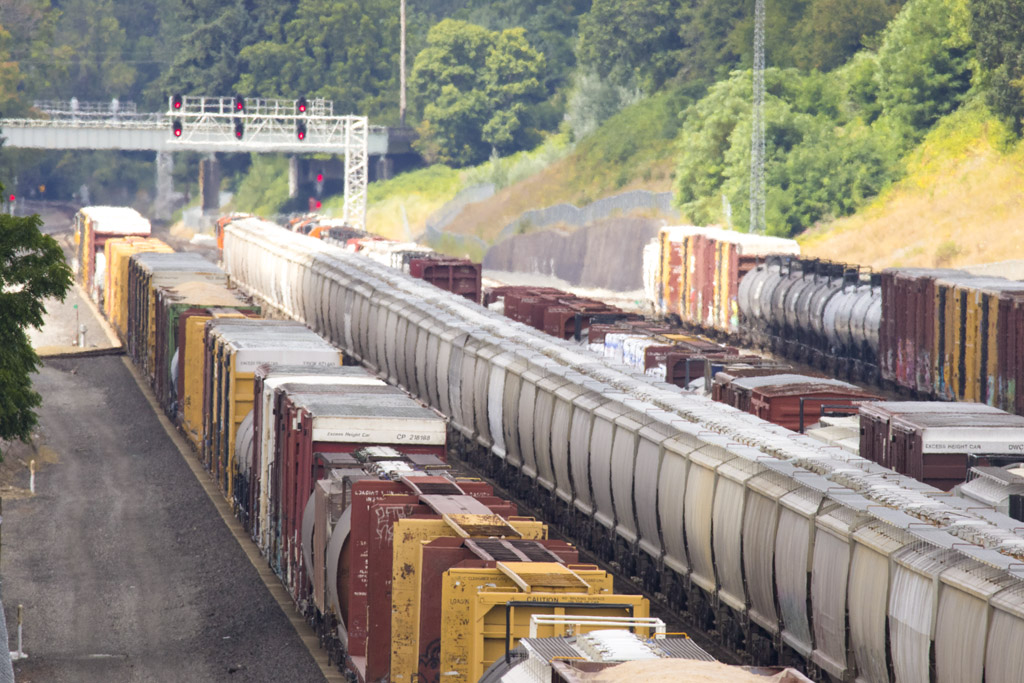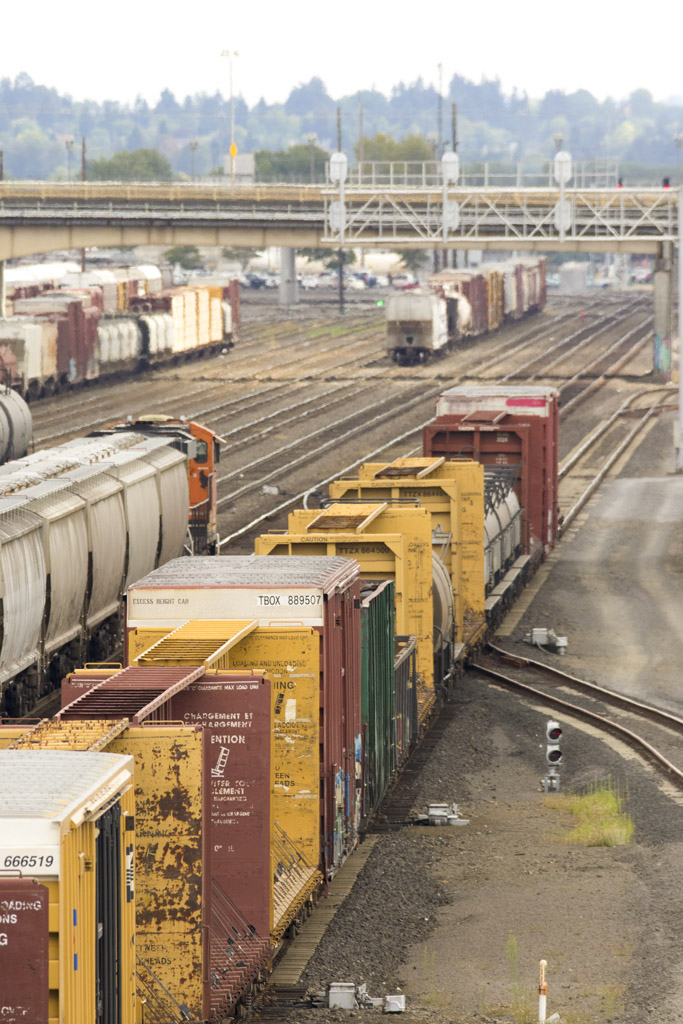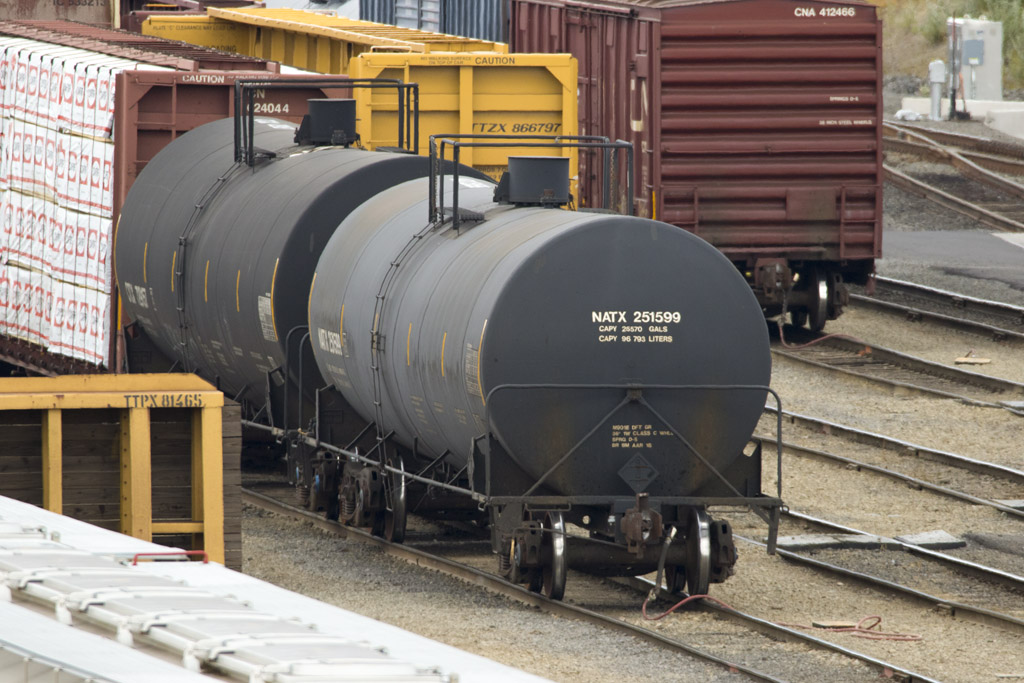VANCOUVER — The Vancouver City Council this week formally opposed any project that increases the number of trains carrying crude oil or coal through the city of Vancouver, including the controversial Millennium Bulk Terminal coal project proposed in nearby Cowlitz County.
If approved, the Millennium Terminal would transport coal from Montana mines to the outskirts of Longview, sending eight loaded unit trains and eight unloaded unit trains, each approximately one-and-one-half miles long, through the city of Vancouver on a daily basis.
On Mon., Oct. 17, the Vancouver City Council passed a resolution expressing concerns about the additional rail traffic, which would exceed existing rail capacity in Vancouver, causing additional traffic congestion and delays. The councilors, with the exception of Councilmember Bill Turlay, said they also worried about health risks posed by stopped and idling traffic, diesel engine emissions and particulates from coal dust, which could be blown from open rail cars passing through Vancouver en route to and from the Millennium Terminal.

Councilmember Alicia Topper brought the resolution to the council’s attention earlier this month and said the resolution will be entered into the official record when the U.S. Army Corps of Engineers (The Corps) holds a public hearing on the proposed coal terminal in Ridgefield on Oct. 25.
Several Clark County residents from Vancouver, Camas and La Center testified at Monday night’s Vancouver City Council hearing in favor of the council’s proposed resolution against the coal project. Many cited the narrow scope of The Corps’ recent draft environmental impact statement on the Millennium coal project, saying the agency did not consider possible negative effects on communities along the rail lines between the Montana coal mine and the Longview port.
Columbia Riverkeeper, an environmental protection group, released a statement after The Corps released its draft environmental impact statement, saying it was short-sighted and ignored “pollution and safety effects from 16 new trains traveling through Spokane, the Columbia River Gorge National Scenic Area and dozens of communities along the rail line.”
The group added that because the “Army Corps fails to analyze rail line impacts, they ignore the massive dust loss from open-top coal trains — an average of 500 pounds per car.”
Vancouver councilors said Monday that they were concerned by the potential for health and safety risks if the Millennium Terminal is approved.

Councilmember Anne McEnerny-Ogle said she worried about the respiratory health of children living near the rail line and for children at Vancouver’s Fruit Valley Elementary School, which is located near the railway.
“We’re seeing more questions about the respiratory health of children who live near these tracks,” McEnerny-Ogle said, citing studies that showed an increased risk of respiratory problems such as asthma in children who live near rail lines in the Vancouver-Portland metro area. “Whether it’s from coal dust or people idling, waiting to cross (the rail lines) or diesel engines … particulate matter seems to be one of the answers. I support the resolution and am looking for answers on how we can help our children.”
Councilmember Turley said he suspected he was the only councilor who opposed the resolution and said he believed the issue was less about science and health issues and more about politics over climate change and fossil fuels like coal.
“I am concerned about trade,” Turley said. “We don’t want people to think that no matter what comes down the line, we’re just going to say no to it. We do live in a train community and there will be more trains coming through if we’re growing economically.”

Councilmembers agreed on Monday night to change language in the proposed resolution that made it seem like the Vancouver City Council opposed all additional unit trains. Instead, the resolution now specifies that the council is opposed to unit trains carrying crude oil or coal, due to the potential health and safety risks such trains pose to the Vancouver community.
Councilmember Ty Stober said he supported the resolution because he couldn’t see any value to the Vancouver community from the Millennium Terminal project, but he could identify the risks.
“Yes, coal has been coming through here for a long time,” Stober said. “But this is a huge jump in volume (from one coal train per week to 16 coal trains, eight loaded and eight unloaded each day). This is a question of value for our community. I don’t see the value, but I do see the impacts. Some are easy to see, like people caught on the other side of the tracks; and some are not so easy to see, like long-range health impacts.”
The U.S. Army Corps of Engineers will be taking comments on its review of the Millennium Terminal’s potential impacts through Nov. 29. The agency will hold two public hearings next week: one in Longview on Oct. 24, and another in Clark County on Oct. 25. The local public hearing will be held from 1 to 4 p.m. and from 5 to 9 p.m., Tue., Oct. 25, at the Clark County Event Center, 17402 NE Delfel Road, Ridgefield.
For more information about the proposed project, visit the Washington State Department of Ecology’s site.




